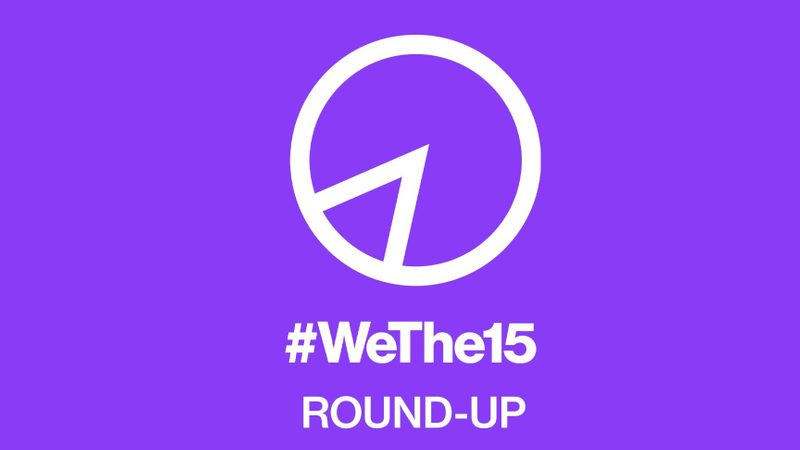
Ⓒ WeThe15, A purple graphic with white border and WeThe15 logo. It reads '#WeThe15 Access All Areas, Round Up.'
- The final episode of the WeThe15: Access All Areas podcast summarises the best of the series, showcasing the great work that has been achieved and paves the way for more to come in advancing the rights for persons with disabilities (PWD).
The WeThe15: Access All Areas podcast released a roundup episode of the series focusing on conversations with 16 guests from across the globe, sharing their stories and journeys.
In addition to highlighting the challenges persons with disabilities face in various sectors including education, politics, advertising and entertainment, guests also shared the progress that has been made to advance representation, accessibility and inclusion.
David Lega, former Member of the European Parliament for Sweden said in the Government and Politics episode: “When I have my assistance, when I have my healthcare, when I have my wheelchairs, when everything around me is working, I can become more than just my disability. My identity can develop and evolve and become something else.
“But if those things are failing, naturally my focus would be on that first. So, I think that's what we as politicians also need to do, make sure that these things are working to allow people to become something else if they want to.”
Guests also noted the power that younger generations have and the role they are playing in increasing visibility and representation of PWD. Keith Jones, founder of Krip Hop Nation, said: “We're on the right path with the younger generation, because everybody's on social media. That's where all the cool kids are. … People with disabilities started finding their communities online and started seeing, ‘oh, we can exchange ideas for our talents and our skill sets’. So, it would be nice if Hollywood would pick up the slack.”
While discussing products and accessibility Christina Mallon, Head of Inclusive Design at Microsoft, stressed the need for universal designs and innovation: “It always just really excites me when I see someone walking around and Kizik sneakers or the Nike adaptive sneakers that don't have a disability because they're like well they're easier to use. And I say, you know, if we thought more about why something was designed the way it was instead of just staying with the same designs, I think we would come into a lot more innovation.”
In the episode on advertising and entertainment Greg Nugent, former Director of Marketing for the London 2012 Games said: “I think this sector could do more than any because you can change the laws but it doesn't mean things will change but what we can do is change attitudes and I think that is working.”
Commenting on her experience in business and employment, Iulia Brehuescu, Global Accessibility Advisor Sanofi elaborated: “The number of disclosures doesn't accurately reflect the number of PWD and I would say there are multiple reasons, but one of them is that in many countries disability is defined in a different way…. Through [a] survey we actually defined what accessibility is and we gave examples what disability is, what we consider disability being at the global level.”
Discussing the aid landscape, assistive technology and perceptions about persons with disabilities, Bernard Chiira said: “In this part of the world users do not have many options so a lot of the time assistive technology users in Africa are denied a great product experience. We help startups to think about AT not just from a medical or clinical perspective but that it's a product and it's going to be used by a customer really not just a user who has preferences, who desires a great product experience, and I think this is really what has been missing.”
On the importance of advocacy and representation in sports, multi-paralympic medalist Tatyana McFadden highlighted: “What most Paralympians should know is that you are just being advocates by just going out and training on the track or going to your local gym because people do see that.
“And they're like, oh, wow, like that's pretty cool. They may ask you a few questions and then you told your story. And then they'll tell that person, that person will tell your story to another person. So that part, you know, has a really powerful effect.”
Each of the eight episodes also concluded with guests discussing the impact the Paris 2024 Paralympic Games will have for disability rights in France and the potential global impact of LA28 which is now just a few years away.
For more details and full episodes, subscribe and listen to the series here.